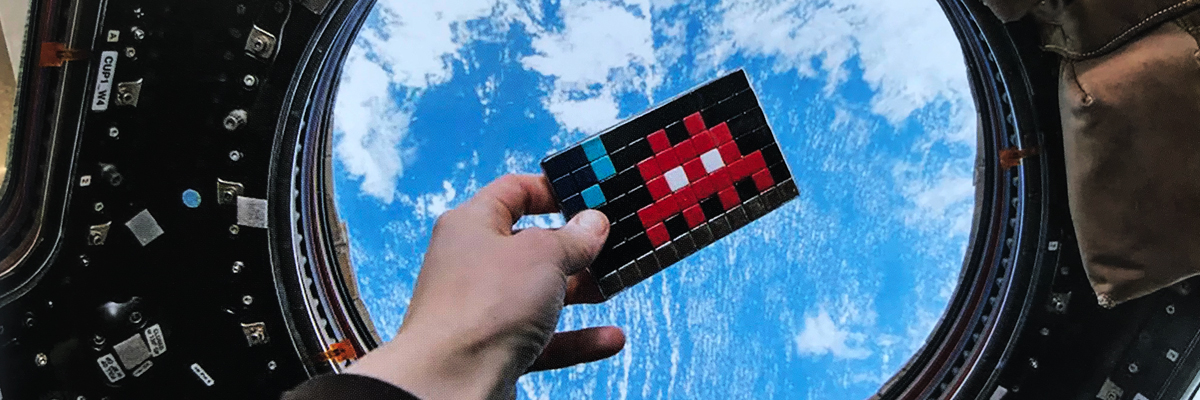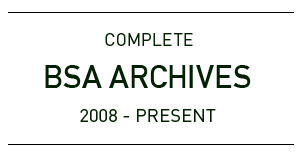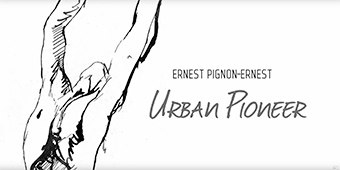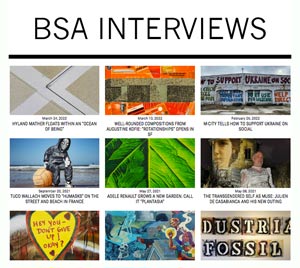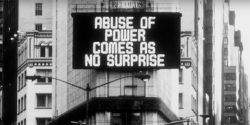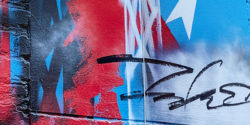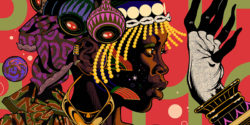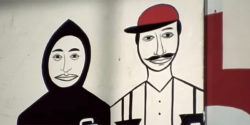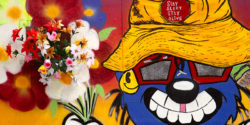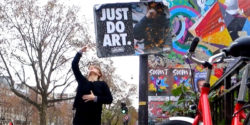In the Street Art continuum that presents itself to the passerby on city streets, the early practice of hand-drawn tags on stolen postal stickers eventually morphed into mass-produced slick runs of personal branding and large scale one-off hand rendered/cut paper pieces wheat-pasted with a brush. This story, ever-evolving, is more inclusive than some may think of when you talk generically about “slaps” on a door or on the base of a streetlamp in the city’s visual dialogue. For the book Stickers Vol 2, author DB Burkeman takes a wider survey of the practice, however, and in his second compendium, he goes where BSA has always followed the creative spirit; wherever it leads.
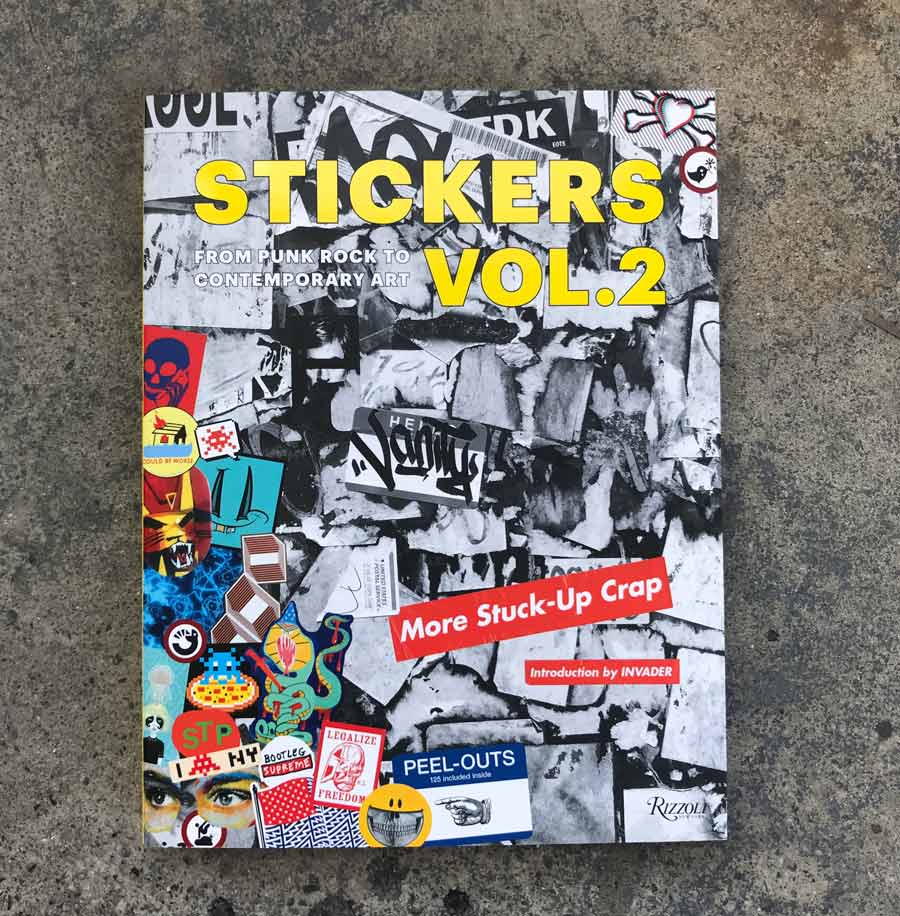
In practice, there are few strictly “sticker artists”. More often there are artists and taggers who also use stickers as part of their public practice which may include painting, aerosol tagging, freehand marker tagging, printing, wheat pasting, sculpture. By adapting the techniques and language of advertising, propaganda, and branding, artists have seized the opportunity to have a voice in the public sphere that is more often only reserved for commercial interests.
Street Artists’ practices of self-promotion are indistinguishable from those of commercial or political interests – and why not? The public space has always been used as a battleground for ideas, a marketplace for attention, a proving ground of identity and power, a theater for capturing imagination, a Socraterial classroom for presenting and probing ideas and the examination of our assumptions about them.
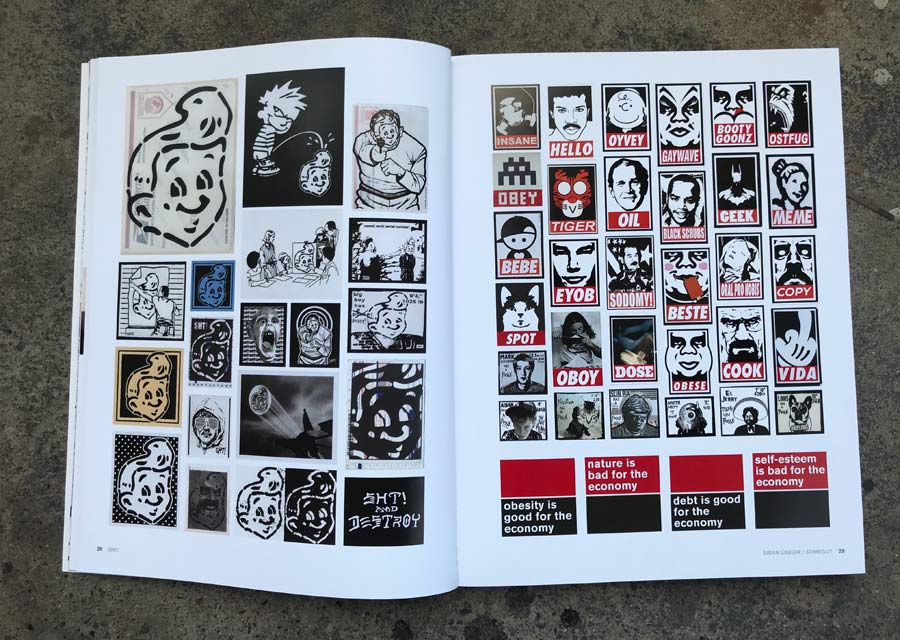
In a fiercely democratic way, with a very low admission price, all motivations are presented here, and all of them are flawed, and all of them are perfect.
Burkeman’s sophisticated examinations of sticking practices are equally wide in his survey – his own full immersion into art, music, performance, consumer psychology, pop culture, and advertising giving him a comprehension and appreciation of its seeming seamlessness.
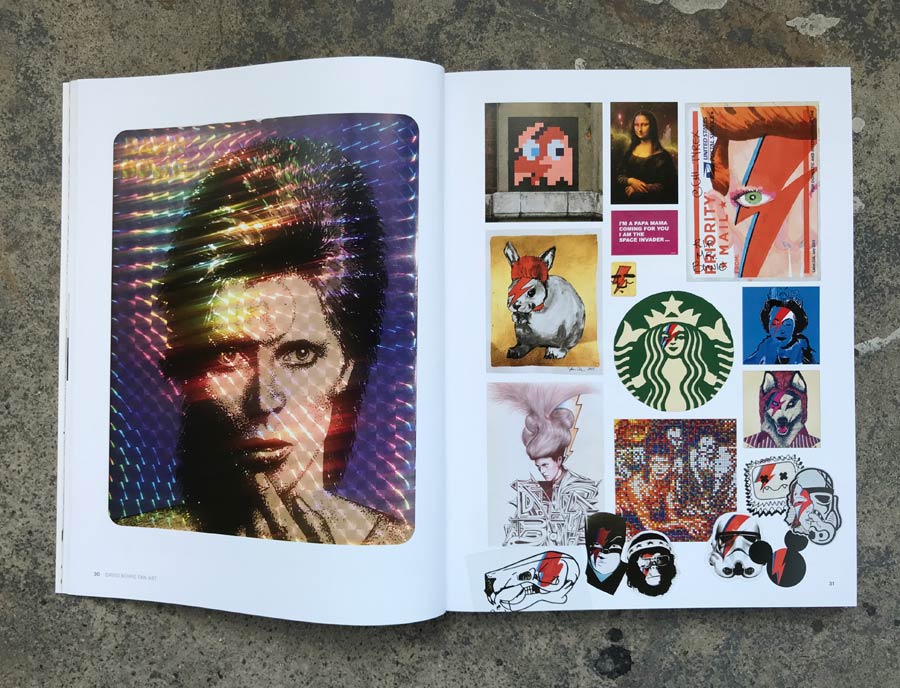
Burkeman’s introductory essay addresses topics ranging from billboard busting, culture jamming, market forces and Warhols’ bananas – admitting that his baseline appreciation has not waned even as his own study lead him ever deeper and deeper into an ocean he still hasn’t fully fathomed since launching his first sticker volume, Stickers: Stuck-Up Piece of Crap: From Punk Rock to Contemporary Art.
“Even after ten years of having this adhesive monkey on my back, I’m surprised that I can still get a kick out of the conversation that happens on the street when someone puts up a sticker,” he says. “It’s like a radiating signal to have others put their own stickers up next to it, as if to say, ‘hey, what’s up?’ The result is a cluster of paper and vinyl personalities.”
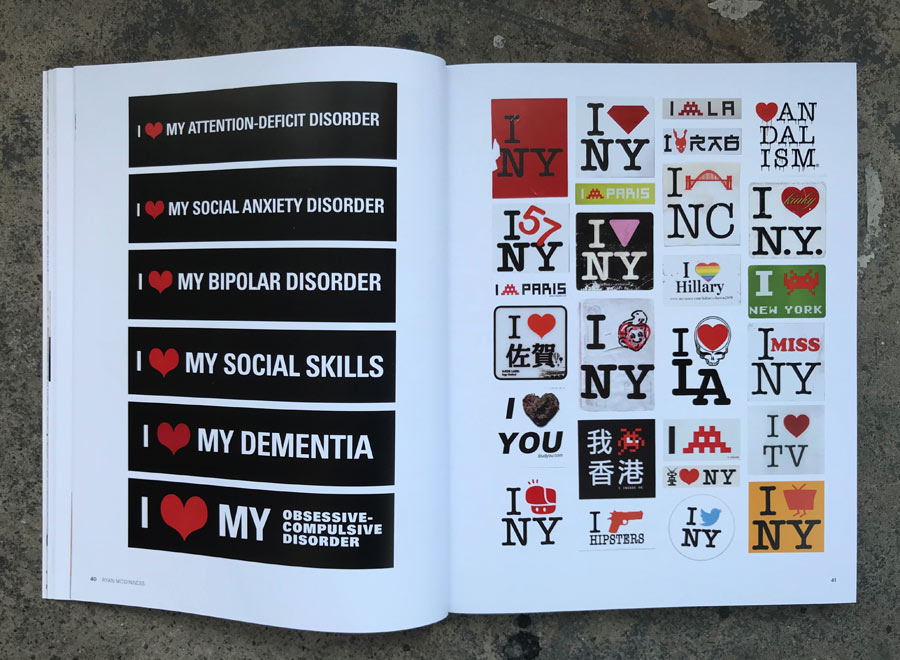
Keeping it contemporary, he also calls in experts from this idiosyncratic world of expressions to further your appreciation for the sticking practice as a reflection of society and a catalyst for it – from the Street Artist Invader to the blue-chip curator/innovator Jeffrey Deitch to fans/visionaries like Stretch Armstrong, C.R. Stecyk III, Dante Ross, and The Super Sucklord.
Using his first book as calling card, many doors have opened to Burkeman, enabling access to collections and rarities, deep dives into the crates, selections of unknowns that you would otherwise not have access to – let alone the opportunity to appreciate. You also get a selection of stickers for your own collection by serious names, including Bast, Lister, Shepard Fairey, Skullphone, Futura, Ron English, and Neckface.
“Cheap, immediate, and unapologetically in your face, the sticker remains the go-to, lo-fi expression for many a band, brand, and fan,” says Don Letts, a founding member of Big Audio Dynamite, among other things. Clearly, the images and messages sent and received using this method have been a boon to those looking to have a voice, and the sticker practice will continue apace. Undoubtedly, DB Burkeman has it covered.
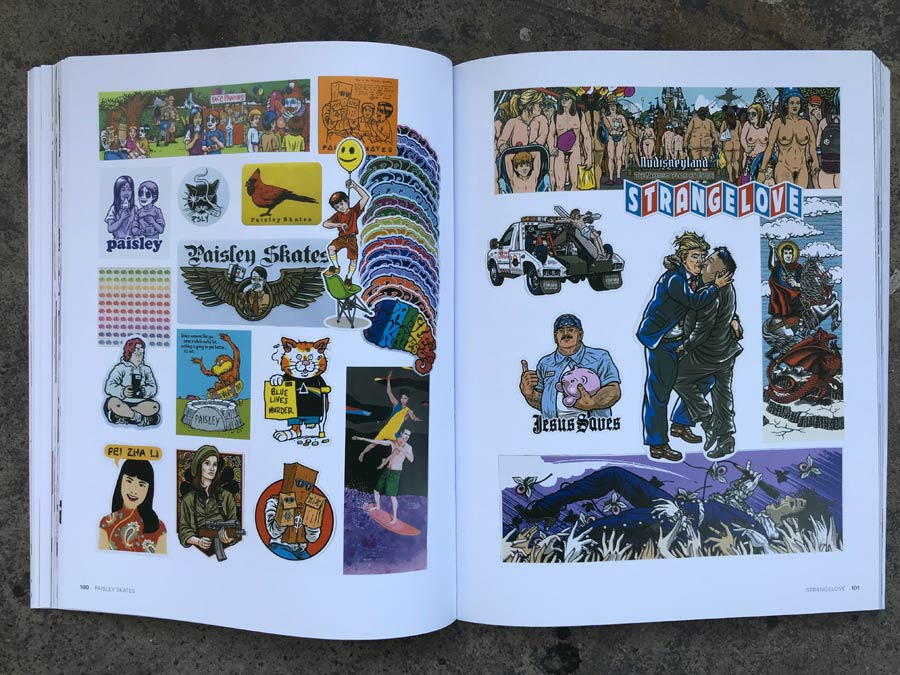
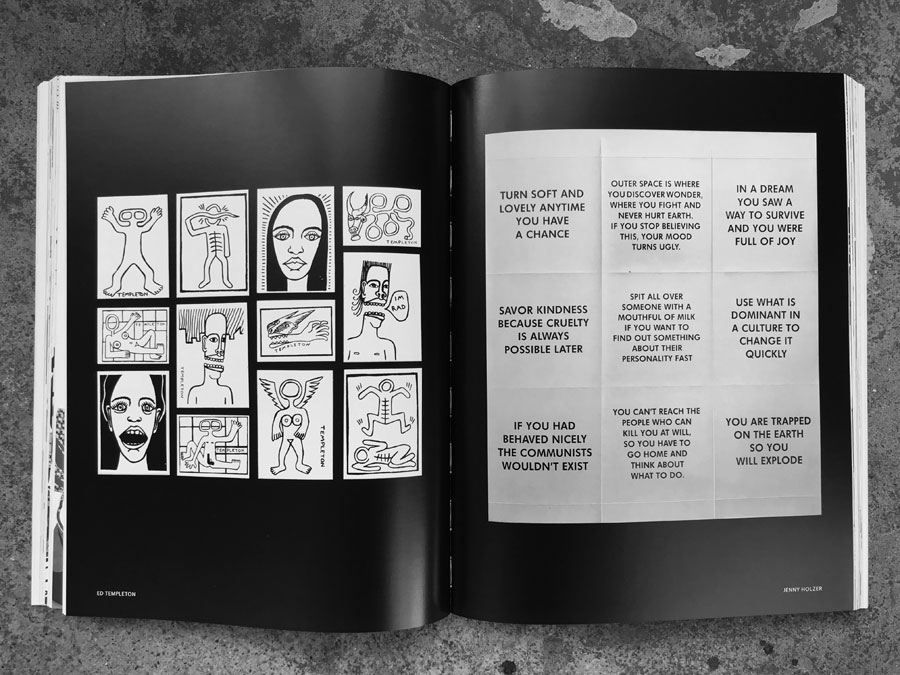
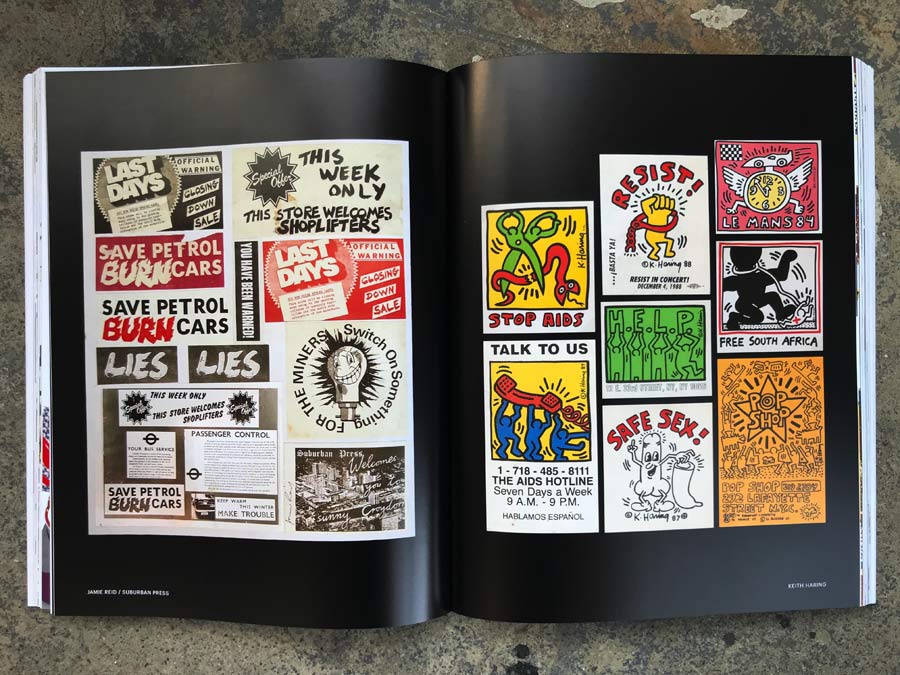
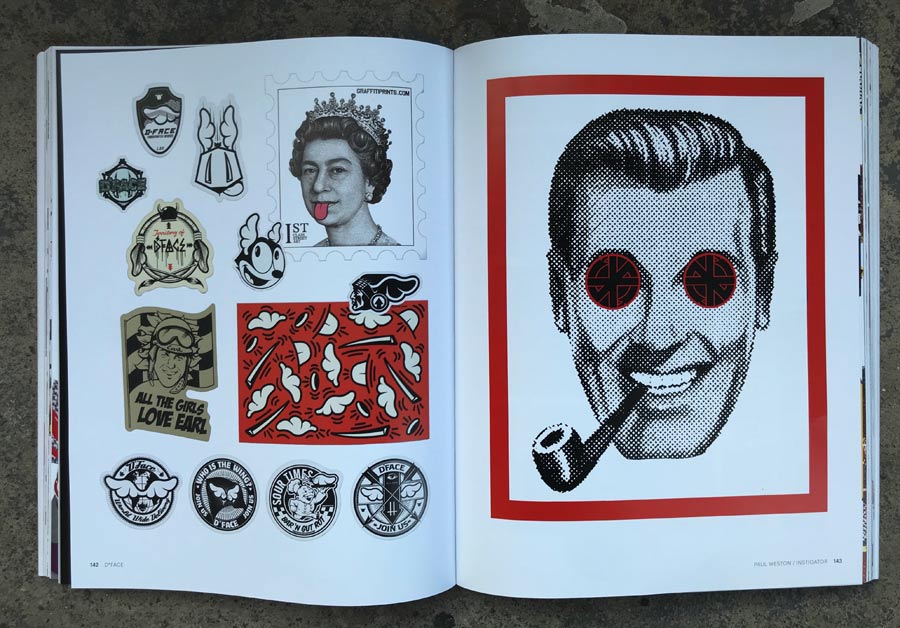
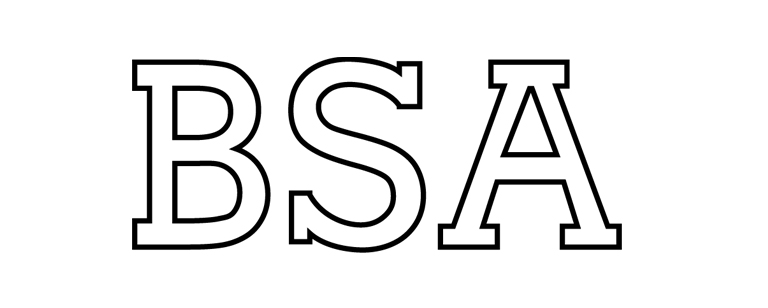 BROOKLYN STREET ART LOVES YOU MORE EVERY DAY
BROOKLYN STREET ART LOVES YOU MORE EVERY DAY